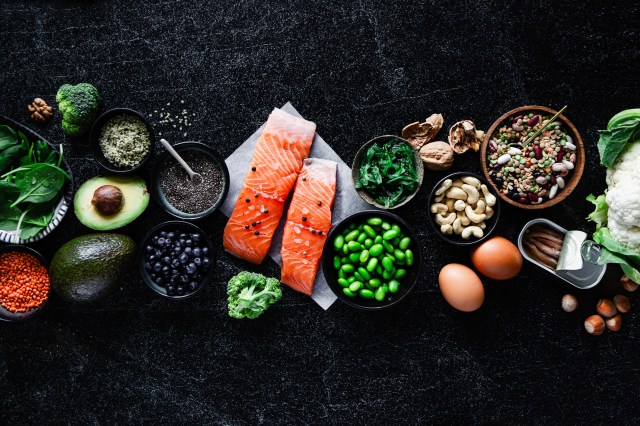
Protein’s importance has started taking center stage—especially for women. If you’re following a low carb lifestyle, optimizing protein intake is key for muscle maintenance, hormone balance and long-term health. Despite it’s importance, much of the research on protein has been done on sedentary, elderly men, leaving women somewhat in the dark when it comes to recommendations.
Let’s explore why protein matters for women, how much you need and how to increase your intake to support a stronger, healthier you.
Why Protein is Essential for Women
Protein Prevents Muscle Loss, Frailty and Falls
Muscle mass naturally declines with age, but women tend to be affected more. UP to 45% of older adults suffer from sarcopenia (age-related muscle loss), and women make up most of this group. This muscle loss leads to frailty, weakness and increased risk of falls and fracture. Once muscle is lost, it’s hard to rebuild. Prevention is key!
TIP: Increasing your protein intake and adding resistance training is the most effective way to increase muscle mass as you age.
Protein May Affect Hormone Balance and Metabolism
Your hormones regulate everything—energy levels, metabolism, weight and muscle growth and recovery. Protein supports hormone production and balance in several ways:
- Insulin and blood sugar stability—During menopause, estrogen declines, kickstarting muscle loss and weight gain. Protein helps maintain lean muscle mass and counteract hormonal shifts. Daily protein consumption also has been shown to improve body composition, fasting blood sugar and insulin levels in obese women.
- Metabolism—Protein may help your metabolism and overall health. Eating optimal amounts of protein throughout the day can help maintain muscle mass, especially when losing weight. Muscle is also more metabolically active than fat, meaning it burns more calories at rest,
How Much Protein Do Women Need?
Most recommendations are based on research on sedentary men, meaning women likely need more than commonly suggested.
How to Calculate Your Protein Needs
- Take your weight in pounds and divide by 2.2 to convert to kilograms.
- Multiply by 1.2 to 2.0 grams per kilogram.
Example: A woman weighing 150 pounds (68 kilograms) should aim for 82 to 136 grams of protein per day.
TIP: Distribute your protein intake evenly among your meals and snacks, aiming for 20 to 30 grams of protein for each meal and 10 to 15 grams per snack to stimulate muscle grown and manage your appetite.
4 Tips for Increasing Your Protein Intake
- Prioritize protein at every meal.
- Start your day with protein: Eggs, Greek yogurt, cottage cheese or a protein smoothie
- Build meals around protein: Poultry, fish, beef, tofu and eggs.
- Pick protein snacks: Hard-boiled eggs, jerky, nuts, ham, turkey, salmon or tuna roll-ups, protein shakes or bars
- Plan ahead to hit your daily target.
- Batch cook your protein, so it is ready to go. Cook multiple servings of chicken breasts or thighs, pork chops, steak, fish or tofu, hard-boil eggs in advance and prepare a few batches of chicken, egg or tuna salad.
- Keep easy-to-grab protein snacks on hand.
- Log your meals and snacks in a nutrition-tracking app or journal to track your intake and adjust.
- Incorporate protein shakes and supplements.
If hitting your target is challenging, consider:
- Whey, an excellent source of leucine, crucial for muscle growth, recovery, blood sugar control and weight control or plant-based protein powders for smoothies
- Collagen peptides (great for skin, joints and gut health)
- Ready-to-drink protein shakes and bars
- Combine protein with strength training.
Strength training signals your body to build and retain muscle and pairing it with protein maximizes muscle-building.
- Try to do two to three days a week of strength training. You can use weights, resistance bands or bodyweight exercises.
- For optimal muscle recovery, consume 30 grams of protein after your workout.
If you’re serious about long-term health, optimizing your protein intake is just as important as reducing carbs. Over time, you’ll feel stronger, more energized and better equipped to thrive on your low carb lifestyle.
